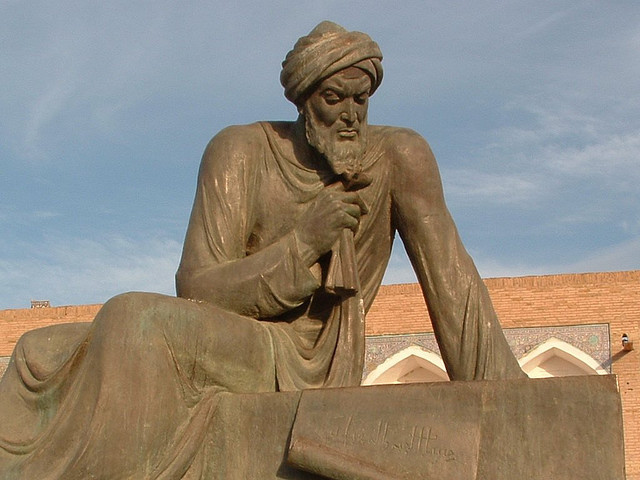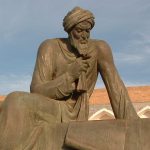Muhammad ibn Musa al-Khwarizmi is mostly known as ‘The Father of Algebra"’. Let us look into few known details of Muhammad ibn Musa al-Khwarizmi. Born into a Persian family, his birthplace is known as Khwarezm. This place is now located in Uzbekistan.
Now let us know about his contributions into the mathematical field. He contributed not only to mathematics but also to geography, astronomy, and cartography. He established the basis for algebra and trigonometry.
‘The Compendious Book on Calculation By Completion and Balancing’ is a book written by him and the word Algebra is the word derived from that book. He also worked on mathematical devices namely astrolabe and sundial.
He worked on works which were based on Babylonian and Persian astronomy. He also made his career into Indian numbers and Greek mathematics. For all of his hard work, he was assisted to determine the circumference of the Earth.
His later on work made a profound impact on the advance of mathematics in Europe. As we all previously know that The Compendious Book on Calculation By Completion And Balancing is a book written by him in 820CE.
Algebra
Algebra is a term which is derived from the book where it is used as a basic operation in an equation. Arabic translation of this book was kept as a memory in Oxford University and Latin translation was kept at Cambridge University.
This book also solves polynomial equations up to a second degree. This also discusses the reduction and balances fundamental expressions. This also solves equations by canceling the equal terms on both sides.
The word ‘Algebra’ is just a broader part in mathematics. This includes the study of abstractions like groups, rings, and fields. A person who is a mathematician and researche
Law Of Inverse:
s in the field of algebra is known as Algebraist.
Law of Inverse is nothing but an unknown letter is taken and then we discover it using this law.
There are different meanings of Algebra. Let us see them how the meaning comes when it is used in different means.
1. Elementary Algebra
2. Abstract Algebra
Here algebraic structures are axiomatically defined and restructured.
3. Linear Algebra
Here specific properties of linear equations, vector spaces, and matrices are studied.
4. Boolean Algebra
This is a kind of algebra which solves using true values which means truth or false.
5. Commutative Algebra
It is the study of commutative rings.
6. Computer Algebra
7. Homological Algebra
8. Universal Algebra
9. Algebraic Numeric Theory
10. Algebraic Geometry
11. Algebraic Combinatorics
12. Relational Algebra


